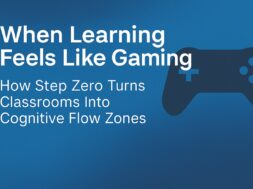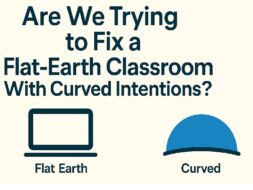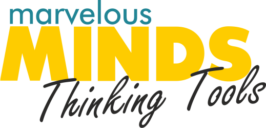Beyond Tests and Textbooks
Education too often gets reduced to a mechanical cycle: lessons, worksheets, tests, and marks. Learners are rewarded for memory rather than meaning, and success is measured in numbers instead of growth.
But true learning was never meant to be this shallow. It is not just about storing information — it is about cultivating wisdom, connection, and purpose. That is the heart of transcendental learning: going beyond the ordinary to discover what learning means for oneself and for the wider world.
The pathway to transcendental learning begins with a pause, moves through reflection, grows sharper in contrast, and ultimately leaps beyond the self.
Step Zero: The Invisible Beginning - Read more here about Step Zero
Every deep learning journey starts before the first step. Learners need a quiet moment to orient themselves — to pause before plunging into problem-solving. This is Step Zero, the invisible stage of preparation.
Just as zero revolutionized mathematics, Step Zero revolutionizes learning. It asks learners to reflect before they act:
- What do I already know?
- What is really being asked?
- Where might this thinking lead?
Without Step Zero, learners rush and remain on the surface. With Step Zero, they anchor their minds for deeper exploration.
Stage One: Metacognition — Thinking About My Thinking
The first visible stage is metacognition, or thinking about one’s own thinking. Here learners develop self-awareness of their thought processes:
- How am I approaching this task?
- Why did I choose this method?
- How might I improve my strategy?
Metacognition transforms learners into self-regulated thinkers. They no longer stumble blindly through problems but begin to guide their own growth. This stage turns learning into an intentional act rather than a passive one.
Stage Two: Juxtacognition — The Power of Contrast
Once learners are aware of their own thinking, the next step is to place it beside other thinking. This is juxtacognition — the sharpening of meaning through contrast.
By setting ideas, methods, or perspectives side by side, learners discover patterns, tensions, and insights that would otherwise remain hidden. For example:
- Comparing fossil fuels with renewable energy opens ethical debates.
- Contrasting historical and modern solutions shows progress and pitfalls.
- Placing one’s own reasoning next to a peer’s reveals blind spots and alternative approaches.
Juxtacognition moves learning from inward reflection to relational exploration. It is here that knowledge begins to stretch beyond the self.
Stage Three: The Leap to Transcendental Learning
From reflection (metacognition) and contrast (juxtacognition), a leap becomes possible — into transcendental learning.
This is where the learner asks not just, What can I achieve? but, How can I contribute? It is a shift from knowledge as personal possession to knowledge as shared purpose.
At this stage, learners connect what they know to the larger human questions:
- What is ethical?
- What sustains life?
- What brings justice or compassion into the world?
The leap is profound: education no longer produces merely achievers, but contributors.
Why This Development Matters
When learners progress through these stages, education is transformed:
- Step Zero creates orientation and readiness.
- Metacognition builds self-awareness.
- Juxtacognition deepens insight through contrast.
- Transcendence gives meaning, purpose, and contribution.
Instead of parroting facts, learners become reflective, relational, and responsible thinkers — equipped not just for exams, but for life.
A Simple Example
Consider a Grade 6 science lesson on fossil fuels:
- Step Zero: Learners pause to recall what they already know about energy.
- Metacognition: They reflect on how they usually learn about science topics.
- Juxtacognition: They compare coal, oil, and gas, noticing both similarities and differences.
- Transcendence: They then ask, What does our use of these fuels mean for the future of our planet?
The shift is striking: learners move from copying definitions to imagining their role in shaping a sustainable world.
A Call to Educators
Education should not end with test scores. Its true purpose is to prepare human beings to think, connect, and contribute.
By guiding learners through Step Zero, metacognition, juxtacognition, and transcendence, we open the door to a richer kind of education — one that nurtures wisdom as much as knowledge, and contribution as much as achievement.
Because at the end of the journey, transcendental learning asks every learner:
Who are you becoming? And how will you use your learning in service of something greater than yourself?





